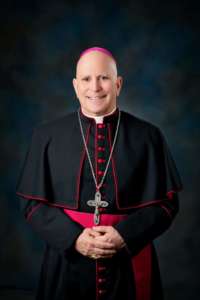As the 2024 election draws near, Colorado finds itself at the epicenter of a national debate on abortion rights, with state Republicans increasingly unifying around an anti-abortion platform. This shift has thrust abortion into the spotlight as a critical issue within the state.
Amidst this contentious backdrop, the Catholic Church released a November 2023 letter on two pivotal ballot initiatives — each poised to impact Colorado’s abortion rights landscape significantly.
The “Right to Abortion” initiative, championed by Coloradans for Protecting Reproductive Freedom, seeks to enshrine abortion rights in the Colorado constitution (Proposed Initiative 89). This measure is part of a broader national push to cement reproductive rights at the state level, promising to safeguard the choice as a constitutional right and reinforcing the state’s stance as a stronghold for reproductive autonomy.
In contrast, the “Protections for a Living Child” initiative (Proposed Initiative 26), put forward by the Colorado Life Initiative, takes a more restrictive approach. Its passage would categorize abortion as a homicide, a stark shift from current legislation.
The Colorado Catholic Conference’s memo to its followers underscores the Church’s unwavering pro-life commitment, emphasizing its stance that life, especially that of the unborn, is a paramount issue for the Church in Colorado.

Samuel J. Aquila – Archbishop of Denver
However, the Catholic bishops of Colorado take a calculated step back from the “Protections for a Living Child” initiative, not out of discord with its pro-life essence but due to the unfavorable sociopolitical climate for such measures in Colorado.
The document goes on to address the Reproductive Health Equity Act (RHEA) passed in 2022, which the Church views with trepidation for codifying elective abortion up to 40 weeks of gestation, among other stipulations.
They further explicate that recent defeats in the electoral and legislative arenas, like the ballot loss for Proposition 115, as reported here, which was a 2020 Colorado ballot measure that sought to prohibit abortions after 22 weeks of gestation, indicate a deficiency in public support for stringent pro-life measures like “Protections for a Living Child.” The memo cautions that such an initiative could inadvertently fuel support for the “Right to Abortion” initiative, citing concerns that the media and pro-abortion advocates could exploit the measure to their advantage.
“The Colorado Life Initiative proposal allows pro-abortion media and advocates to scare voters into supporting their initiative by saying things like ‘They are trying to ban abortion!’ At the same time, they cast their extreme initiatives as reasonable and a defense of women. This is why Colorado Life Initiative’s proposal will not be a successful option to advocate for life-affirming policy and scale back the abortion stronghold in our state government,” the memo states.
The Catholic Church’s message is clear: “While Church teaching supports pro-life measures, ‘Protections for a Living Child’ sponsored by Colorado Life Initiative is not a prudent alternative in our state’s current political climate and will likely harm pro-life efforts in Colorado possibly for years to come.”
Consequently, the bishops advocate for a different avenue — engagement through the Pro-Life Colorado coalition, which unites over 40 pro-life organizations. They counsel against collecting signatures for either initiative, particularly the “Protections for a Living Child,” suggesting it may not be a feasible strategy to foster a life-affirming policy in the present climate.
This overt appeal for strategic action over immediate legislative efforts, as per the letter, accentuates the Catholic Church’s calculated strategy in confronting the abortion rights issue during an election year that may herald significant changes to Colorado’s legislative landscape on this polarizing matter.




